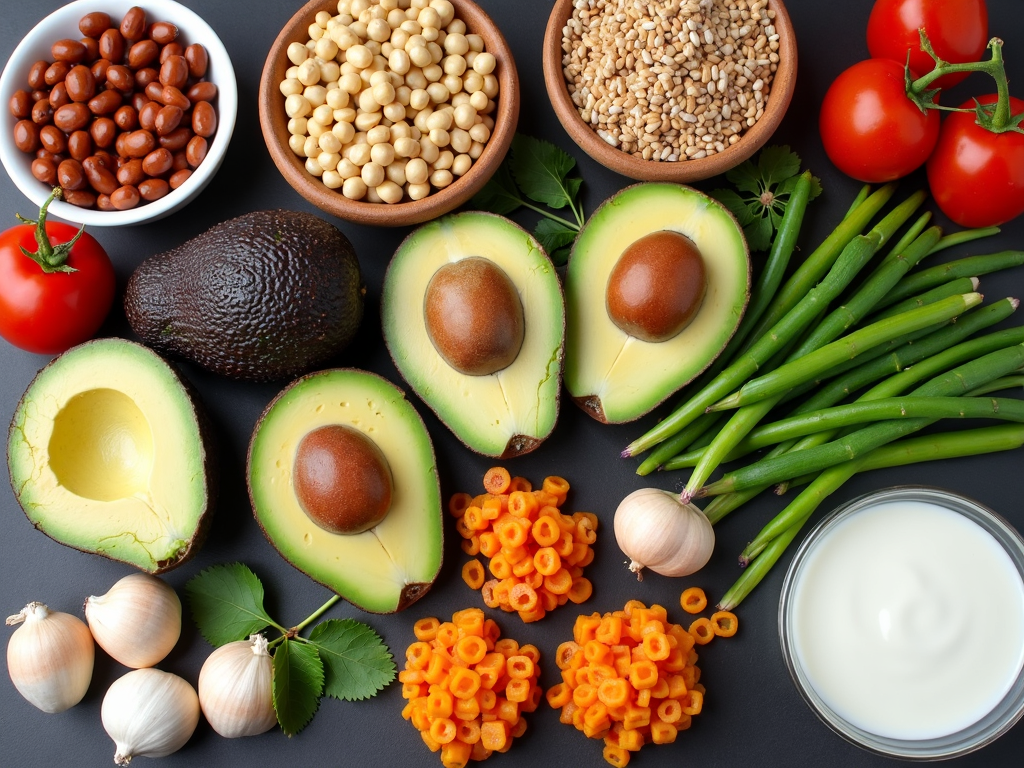Boost Your Fertility Naturally: The Groundbreaking Fertility Diet
June 23, 2025, 7:21 a.m.
Overview
Are you struggling to conceive? You're not alone. Infertility affects millions of couples worldwide, and it can be a challenging and emotional journey. But what if there was a natural way to boost your fertility and improve your chances of getting pregnant? Enter the fertility diet, a groundbreaking approach based on research from Harvard School of Public Health. This diet emphasizes specific foods and nutrients that can enhance ovulation and increase your likelihood of conception. In this article, we'll explore the fertility diet in detail, including what it is, how it works, and what you can do to incorporate it into your life.

What is the Fertility Diet?
The fertility diet is not just another fad diet; it's a scientifically backed approach to enhancing fertility through nutrition. The concept emerged from a landmark study led by Dr. Jorge Chavarro and his team at the Harvard School of Public Health. Published in 2007, the study analyzed data from the Nurses' Health Study II, which followed over 18,000 women attempting to conceive. The researchers identified a specific dietary pattern associated with a lower risk of ovulatory infertility.
According to the study, women who adhered to this dietary pattern had a 66% lower risk of ovulatory infertility compared to those who did not. This finding was significant because ovulatory disorders account for a substantial portion of infertility cases. The fertility diet, therefore, focuses on foods and nutrients that support regular ovulation and overall reproductive health.

The Research Behind the Fertility Diet
Let's delve deeper into the key dietary components identified in the Harvard study:
-
Plant-based proteins: The study found that replacing animal proteins with plant-based sources can improve fertility. Plant proteins are often accompanied by other beneficial nutrients like fiber, antioxidants, and phytoestrogens, which may help regulate hormones and protect eggs from oxidative stress.
-
Full-fat dairy: Surprisingly, the research suggested that full-fat dairy products might be better for fertility than low-fat options. One theory is that full-fat dairy contains more sex steroid hormones, which could influence ovulation. Additionally, low-fat dairy products often have higher levels of insulin-like growth factor, which might negatively affect fertility.
-
Monounsaturated fats: These healthy fats, found in olive oil, avocados, and nuts, are associated with better fertility outcomes. They can help reduce inflammation and improve insulin sensitivity, both of which are important for reproductive health.
-
Low GI carbohydrates: Carbohydrates with a low glycemic index release sugar slowly into the bloodstream, helping to maintain stable blood sugar levels. This is crucial because insulin resistance and high blood sugar can disrupt hormonal balance and ovulation.
-
Iron-rich foods: Iron is essential for ovulation and egg health. The study found that women who consumed more iron from plant sources had a lower risk of infertility.
On the flip side, the study highlighted dietary habits to avoid:
-
Trans fats: These artificial fats, often found in processed foods, can increase inflammation and insulin resistance, both of which can impair fertility.
-
Animal proteins: While some animal proteins are necessary, excessive consumption, especially of red meat, was linked to higher infertility risk. This might be due to the saturated fats and hormones present in animal products.
-
High GI carbohydrates: Foods like white bread, pastries, and sugary drinks can cause rapid spikes in blood sugar, leading to hormonal imbalances that affect ovulation.

How the Fertility Diet Works
The fertility diet supports reproductive health through several mechanisms:
-
Hormonal balance: Many of the recommended foods help regulate hormones like insulin, estrogen, and progesterone, which are critical for ovulation and implantation.
-
Antioxidant protection: Plant-based foods are rich in antioxidants, which protect eggs and sperm from oxidative damage, improving their quality.
-
Inflammation reduction: Chronic inflammation can interfere with fertility. The diet's emphasis on healthy fats and whole foods helps reduce inflammation.
-
Nutrient support: Specific nutrients like folate, vitamin D, and omega-3 fatty acids, which are abundant in the fertility diet, are essential for reproductive function.
Incorporating the Fertility Diet into Your Life
To make the fertility diet more actionable, consider the following tips:
-
Meal planning: Plan your meals around plant-based proteins. For example, have a lentil soup for lunch or a chickpea salad for dinner.
-
Snacks: Choose snacks that align with the diet, such as a handful of almonds or a piece of fruit with peanut butter.
-
Dairy choices: When buying dairy, opt for full-fat versions. For instance, use whole milk in your coffee or enjoy a serving of full-fat Greek yogurt.
-
Cooking methods: Use olive oil for cooking and dressings to increase your intake of monounsaturated fats.
-
Carbohydrate swaps: Replace white rice with brown rice, or choose whole-grain bread instead of white bread.
Here's a sample daily menu:
-
Breakfast: Oatmeal with whole milk, topped with berries and walnuts.
-
Lunch: Quinoa salad with mixed vegetables, chickpeas, and avocado, dressed with olive oil.
-
Snack: Full-fat yogurt with honey and almonds.
-
Dinner: Baked salmon with a side of steamed broccoli and sweet potato.

Common Myths About Diet and Fertility
There are many misconceptions about how diet affects fertility. Let's debunk some of them:
- Myth: You need to eat a lot of meat for fertility.
Fact: While protein is important, the type matters. Plant-based proteins are actually better for fertility according to research.
- Myth: Low-fat diets are best for conception.
Fact: Full-fat dairy has been shown to be more beneficial for fertility than low-fat options.
- Myth: Carbohydrates are bad for fertility.
Fact: It's not about avoiding carbs but choosing the right ones. Low GI carbs are recommended.
- Myth: Supplements can replace a healthy diet.
Fact: While supplements can help, they can't fully compensate for a poor diet. Whole foods provide a range of nutrients that work synergistically.
By addressing these myths, you can make more informed choices about your diet and fertility.

Understanding Infertility and Fertility Clinics
While the fertility diet can be a helpful tool, it's important to remember that infertility is a complex issue that may require medical intervention. If you've been trying to conceive for over a year without success, it may be time to consult a fertility specialist.
Fertility clinics offer a range of services to help couples overcome infertility, including diagnostic tests, medications, and assisted reproductive technologies like in vitro fertilization (IVF). If you're considering visiting a fertility clinic, it's natural to feel anxious or unsure about what to expect.
For more information, check out our articles on Understanding Infertility: A Comprehensive Guide and What to Expect at a Fertility Clinic.
Summary
In conclusion, the fertility diet offers a natural and evidence-based way to enhance your fertility. By incorporating plant-based proteins, full-fat dairy, monounsaturated fats, low GI carbohydrates, and iron-rich foods into your diet, you can support your reproductive health and improve your chances of conceiving. Remember, while diet is important, it's just one piece of the puzzle. If you're facing infertility, consider consulting a fertility specialist for a comprehensive approach. With the right support and lifestyle changes, you can take proactive steps towards achieving your dream of parenthood.